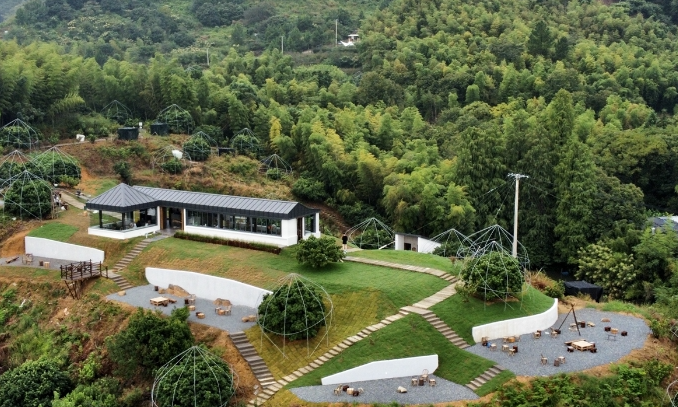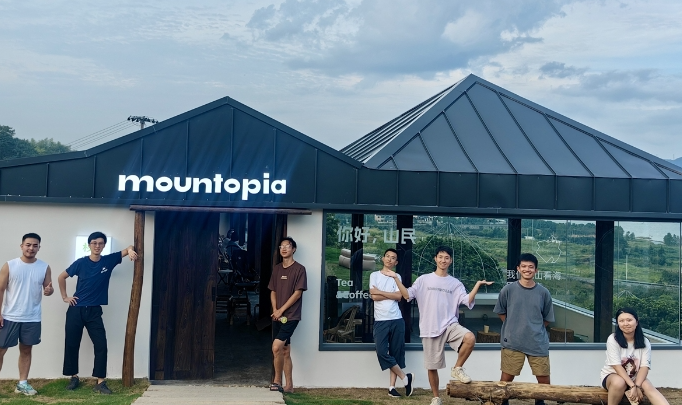The youth of today, particularly Gen Z, are emerging as the vanguards of change, bringing boundless energy and vibrant personalities to the forefront of innovation. With their open mindsets and international outlooks, they are actively integrating into global currents, engaging in deep exchanges, and collaborating with peers worldwide to tackle global challenges.
The Global Times launched the “Voice from Gen Z” series, highlighting the proactive actions and innovative achievements of young people in areas such as global governance, cultural exchange, environmental protection, and technological innovation. This column aims to showcase the unique charm and future leadership potential of global Gen-Zers.
This summer, China is not only experiencing scorching temperatures but also witnessing a surge of 12 million graduates entering the job market. According to the Ministry of Education, the number of college graduates this year is expected to reach 11.79 million, an increase of 210,000 year-on-year.

From 7.27 million in 2014 to 8.2 million in 2018, and 9.09 million in 2021, the growing numbers reflect the mounting employment pressures faced by college students entering society. Many industry reports show that more and more Chinese graduates are prioritizing stable jobs in government agencies or companies. However, a rising number of young people are opting for different pursuits.
Li Zaipei, a graduate with a degree in automatic engineering, is one such individual. Born in 1996 in Henglu village, East China’s Zhejiang Province, Li believes that nature is the spiritual home of urbanites. With this insight and a deep affection for his hometown, Li decided to return to the village and establish a coffee brand with the concept of “escaping to the mountains,” catering to those feeling tired in the big cities and offering them relaxation and solace in nature.
Over the years, Li and his young team, consisting of graduates from the US and the UK, have utilized their professional knowledge and international perspectives to carve out a new path for his hometown’s prosperity—village cafes.
Traditionally, graduates returning to rural areas and starting businesses focused on countryside tourism, agricultural products, and fruit picking. However, Li broke away from such development scenarios and introduced the urban concept of “drinking coffee” to the countryside. This created a “paradise” where young people can escape the city’s hustle and bustle while not being completely detached from urban life.
“Breathe, relax, that’s all.” This slogan on the glass window of Li’s coffee shop reflects his vision. Born and raised in Siming Mountain, Li knows the appeal of nature to urban dwellers. “After staying in the concrete jungle of the cities for a long time, people will always long to breathe fresh air. This might be an opportunity for me to create a business while making some contributions to my hometown,” Li said.
Initially, villagers in Henglu were skeptical about selling coffee in the countryside. However, after a year of exploration, Li proved that they were not just selling coffee but emotional value. Li’s entrepreneurial team consists of talented youth with diverse backgrounds, including graduates from the US and the UK, who brought their expertise in management, marketing, and design to the venture.
In their coffee house, Li and his team use popular visual design elements and the concept of “aesthetic economy” to attract visitors. They hired professional photographers to take free photos for visitors, meeting the social needs of young people to take photos and post them on their WeChat Moments. They also encourage visitors to upload pictures or videos on popular social media platforms such as Douyin, Kuaishou, and Xiaohongshu (Little Red Book) to attract more young people to the cafe.
This lifestyle, developed by young Chinese people, refers to Daka, meaning “punching the card,” which has become a subculture in the country. In summer, they add local specialty fruits to coffee to arouse customer curiosity. With the influx of traffic, it quickly became a popular internet-famous coffee spot in the Yangtze River Delta region.
“Village cafes” have become a vivid reflection of the changes in rural development. Blending in local culture, they allow visitors to enjoy the peaceful taste of coffee while experiencing the charming appearance of the village. “While bringing in more visitors, village cafes are also driving the development of local tourism-related industries such as catering and accommodation,” Li said.
Moreover, two artists from the Royal College of Art in London, inspired by Li’s entrepreneurial story, began conducting a field survey to see if they could start a business—holding art exhibitions in the village.
“After studying abroad, we came back to work in rural China—this is the life that we want,” Li’s team told the Global Times. “Like a magical key, village cafes open up more possibilities for rural development. We hope to continue to explore the unlimited possibilities of the Chinese countryside as the spiritual home of city dwellers.”

